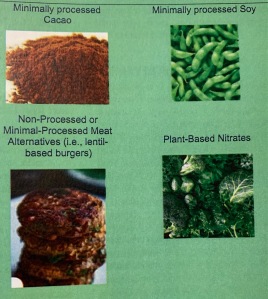In our 3rd installment on “Trending Nutrition Controversies” by the American College of Cardiology’s Nutrition Workgroup and led by Dr. Monica Aggarwal, we describe some of the popular dietary-related controversies in 2021. For a link to this publication, press here.
Below are highlights of this review and the evidence for or against the use of these products and development/progression of cardiovascular disease.
- Artificial and Non-Nutritive Sweeteners: Whether they contain aspartame (Equal), saccharin (Sweet & Low), sucralose (Splenda) or stevia (Truvia), the artificial sweetener franchise has been stirred into a frenzy as several large studies have linked the frequency of these sweeteners to weight gain, increased risk of Type 2 diabetes and cardiovascular disease. Consequently and until new studies suggest otherwise, we recommend limiting the use of artificial sweeteners. Instead, consider adding unsweetened vanilla/ cocoa extract and/or a cinnamon stick to your morning Java.
- Cocoa/Cacao: As a rich source of antioxidants, studies have shown that 1-2 tablespoons of cocoa/cacao daily is associated with 10-15% lower risk of heart disease compared to non-consumers. Minimize use of chocolate-containing products that are highly processed (e.g., sugar and corn syrup) to maintain the benefits.
- Soy: Isoflavones (e.g., genistein, daidzein) present in soy are powerful antioxidant and anti-inflammatory mediators. Substitution of soy in place of animal based protein has been associated with reductions in LDL cholesterol (3-5%), systolic blood pressure (5-7 mmHg) and overall improved survival from heart disease and cancer.
- Plant-based Meats and Substitutes: Despite the recent hoopla surrounding the alternative meat craze for the plant-based Beyond Burger (mung bean/pea) and Impossible Burger (soy), both products also add saturated fat (coconut oil) and sodium to enhance flavor and texture. While these substitutes may be viewed as “healthier” compared with animal sources of protein, they are viewed as less healthy choices when compared to minimally processed proteins, such as lentils, peas and beans.
- Dietary Nitrates: Foods such as beet root, celery and dark green vegetables are high in dietary nitrates. Plant based nitrates promote the production of nitric oxide that in turn improves vascular health, reduces insulin resistance and improves exercise capacity. Supplementation with beetroot juice (high in dietary nitrates) was shown to reduce systolic blood pressure by 8 mmHg (the near equivalence to a single BP medication). After nitrates are converted to nitrites, the antioxidants contained within plant but not animal based products also protect against the formation of carcinogenic nitrite (N-nitroso) compounds.
- Grass-Fed versus Grain-Fed Meats: Grass-fed beef has a lower fat content with a more favorable saturated fat profile than consumption of grain-fed meat. However, both grass-fed and grain-fed meats contain trans-fats that promote heart disease and studies to date have not shown differences between the two in cholesterol levels, triglycerides, blood pressure or insulin sensitivity. In case you missed highlights of our 2nd Nutrition Controversy paper press here and see below:
- Added Sugars: Individuals should limit added sugar to less than 10% of calories and preferably less than 100 calories daily for women and less than 150 calories daily for men.
- Legumes: Consuming 3.5 ounces of legumes (such as beans, chickpeas, lentils and peas) at least 4 times each week is associated with ~15% reduction in the risk of heart disease.
- Tea consumption: Daily consumption of any tea is associated with an 8-10% reduced risk of heart attack or stroke.
- Kimchi: In a 2-week study in overweight/obese men and women consumed 3 servings (3.5 ounces) of kimchi daily, significant decreases in weight (3.3 lbs), fasting glucose (100to 94 mg/dl), and systolic BP (126 to 121 mm Hg) were observed.
- Folic Acid & Vitamin B12: Although folic acid and vitamin B12 supplements lower homocysteine levels, results from large clinical trials studies have failed to demonstrate reduction in cardiovascular events.
- Probiotic yogurt: Diabetic patients randomized to probiotic yogurt containing Lactobacillus acidophilus (300 g daily) for 8 weeks experienced a 23% reduction in LDL-C and 15% increase in HDL-C compared with baseline. And for some of the highlights of our 1st Nutrition Controversy paper press here and see below:
- Green Leafy Vegetables: For each oz of green leafy vegetables consumed daily, there is a 13% lower risk of developing T2DM.
- Southern Foods: A Southern pattern of eating consisting of fried foods, egg dishes, processed meats, and sugar-sweetened drinks is associated with a 50-60% increase in cardiac events over a 6-year period compared to a primarily plant-based pattern.
- Cholesterol: For each 300-mg increment in dietary cholesterol (~2 egg yolks), blood cholesterol levels rise 6-7 mg/dL
- Blueberries: Consuming ~1 cup of blueberries per day is associated with blood pressure reduction of 7 mm Hg systolic and 5 mm Hg diastolic.
- Anthocyanins: A 32% lower risk of a heart attack was observed in those with the highest compared to the lowest quintile of anthocyanin intake (e.g., blueberries and strawberries).
- Mixed Nuts: A Mediterranean diet supplemented with a 1 ounce serving of mixed nuts daily for 5 yrs was associated with a 30% lower risk of cardiac events compared with a lower-fat control diet.
- Plant-based diet: A study conducted in Tarahumara Indians consuming a plant-based diet (e.g. corn and beans) did not identify a single overweight or hypertensive man during the 4-yr follow-up period.
- Vegetable Oils: A study conducted in Costa Rica found that the saturated fat, palm oil used for cooking was associated with 25-30% higher risk of heart disease compared to use of less saturated vegetable oils (soybean and sunflower).
Dr. Michael Miller is Professor of Cardiovascular Medicine at the University of Maryland School of Medicine in Baltimore, Maryland. Check him out on twitter: @mmillermd1

